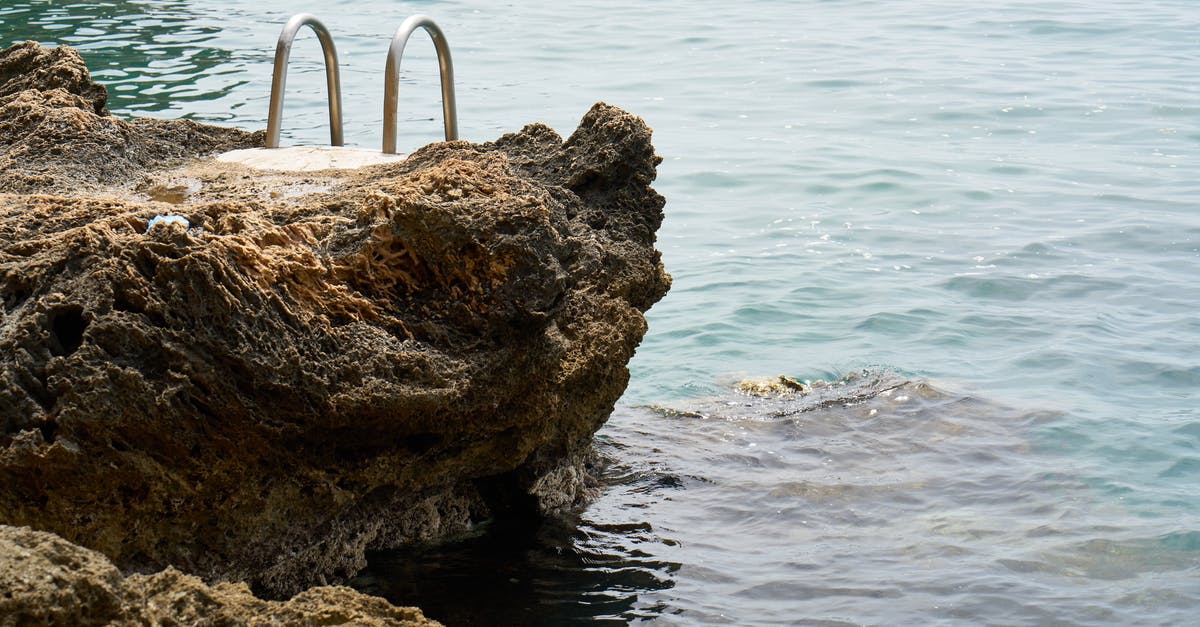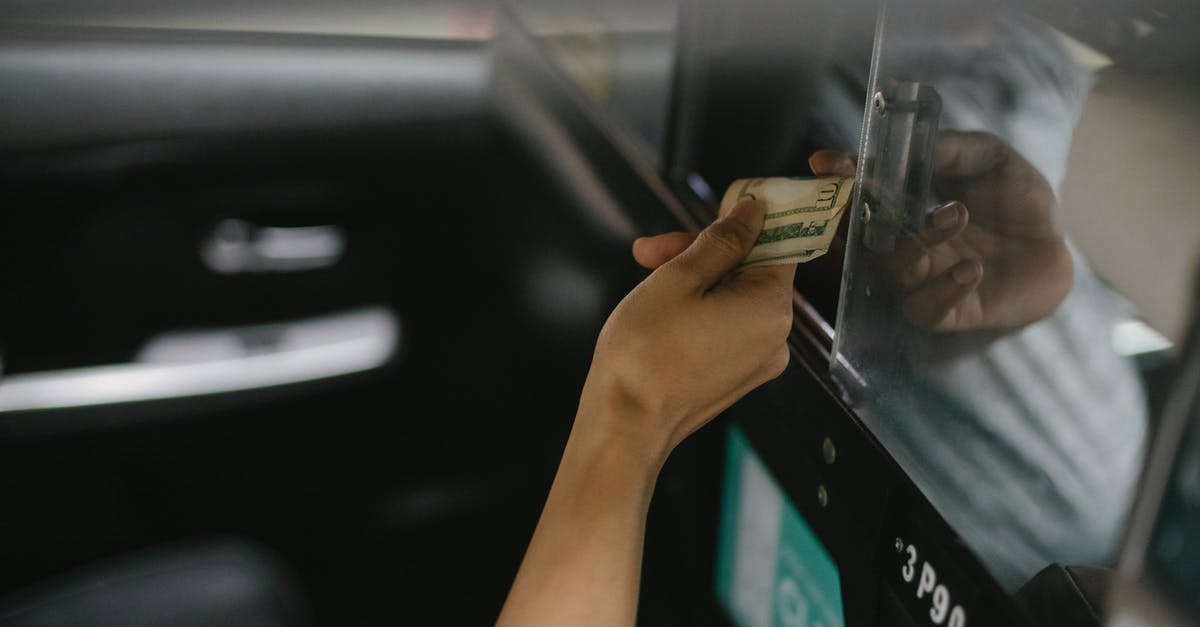How to handle spending money for extended trip to Europe?

So I'm gearing up for a roughly 6-week trip to Europe early next year (Poland and one so-far undetermined eastern/central European country), but there's one big thing I'm still trying to figure out: how to carry around spending money for that time without hanging a giant sign on myself saying "mug me, please!".
The scenario is this: I haven't got a credit card, and only have a Canadian bank account. Ideally, I'd be able to use my Canadian debit card to make purchases (it's EMV, which I know is widely-accepted in Europe), but I also know that this may not be an option. Given that I'm going to be gone for roughly 6 weeks, and living out of my backpack for a good chunk of that time, it's been recommended that I bring anywhere between 1000 and 2000 euro with me, and I feel extremely uncomfortable carrying that much cash on my person (or storing it somewhere I don't trust, like at a hostel - and I can't afford hotels).
One thing I've been considering is only carrying a small amount of it and periodically topping up at ATMs, but that depends on how much I'd pay in ATM fees - are there any BMO Bank of Montreal customers out there who know how much I'd get dinged for using a European ATM? I know I paid a comparatively hefty fee when I had to go to the States and use an ATM there.
Are there alternate solutions? Given that I'm only going to be gone for 6 weeks, opening a European bank account isn't really practical (even though I also have Polish citizenship).
If it matters, my debit card can be used on the Cirrus, Maestro, and Interac networks - how many PoSs in Europe actually support these? I know that, in Canada, support for Interac is almost universal at retail endpoints.
Best Answer
I travel for much longer durations than your planned trip. This is what I do in basically all countries:
- Have at least two cards that work on one or more of the Cirrus, Maestro, Mastercard, Plus, or Visa systems. More systems is better. More than one bank can be better. If you have cards from the same bank make sure they are linked.
- Primary card is a debit card, backup card may be a credit card.
- Withdraw each time the maximum amount you feel you could lose without devastating you or your plans. For me that's around $300-$350 and/or enough money to last two weeks.
- Purchase things with the cards whenever possible, but only when there is not an extra fee for using the card.
- Take some money to get from the airport to the city in case of ATM trouble at the airport. This may be local money you got from a currency exchange at home, your home currency if you know it's easy to convert at your destination, or a third-country currency that is easy to convert both at your home country and at your destination. This could be between about $20 to $100.
- Before you leave home, find out if your bank has any agreements with any banks in your destination countries that will allow you to use ATMs there with no fees or reduced fees.
- Google online about which ATMs have the lowest fees for foreign cards. If your Mastercard or Visa card is a true credit card rather than a debit card this will usually be the most expensive as it is classed as a "cash advance" and those attract very high interest rates typically with no interest free period.
- Avoid using private ATMs when possible. These usually have higher fees than bank ATMs. Learn the names of the local banks because some ATMs inside petrol stations, shopping malls, and convenience stores will be private ATMs and some will be bank ATMs.
- Try to use ATMs at banks during business hours. Things go smoothest in this case if the machine swallows your card. Some countries have ATMs in post offices, which is OK too.
Do no take huge amounts of cash if it can be avoided. Usually it can be avoided. If you were going to Iran then it would be unavoidable.
Others have mentioned the kind of cards that you put money on at home. I believe they go by several names. I personally have yet to try these because usually they have a set number of currencies and my trips are a bit random such that I don't really know which countries I'll be in. Also it seems they changes their rules and fees a lot and the fees only ever go up and the rules only ever get more subtle/confusing. However, if you're only going to two countries, this may well be the ideal solution in your case. You should ask your bank if they provide such a thing.
Pictures about "How to handle spending money for extended trip to Europe?"



How do I plan an extended trip to Europe?
Planning a Trip to Europe: Your 10-Step GuideHow much money do you need for a 2 month Europe trip?
Other FAQ About Spending 2 Months in Europe The minimum amount of money you can expect to spend during your 2 month Europe itinerary (not including) flights is 6,000 USD. This assumes that your food, accommodation and transport within the continent will cost no less than 100 USD per person, per day.How much money do I need for 4 weeks in Europe?
Some countries and cities are much more expensive than others so this can impact on your daily accommodation budget for your European holiday, too....1 month in Europe budget (travelling by car)Economy class flights for 2 adults^$ 5,000$13,735Spending money* \u2013 $1250 per week x 4 weeks$ 5,0008 more rows•Feb 8, 2016How do I save money to travel Europe?
8 tips to save money on your vacation in EuropeHOW TO TAKE YOUR MONEY ABROAD: TRAVEL TIPS!
More answers regarding how to handle spending money for extended trip to Europe?
Answer 2
Since you're Canadian, maybe this is an option:
CIBC Smart™ Prepaid Travel Visa* Card
Seems you can preload it with Euros and use it as you would any Visa branded card, including ATM.
You might still be subject to ATM fees, but that would be the case with nearly any card unless you can find a no-fee ATM.
Answer 3
Although you do not want a credit card you can get a prepaid card which acts like a credit card for purchases yet lets you spend only the fund you load it with and does not accrue interest like credit cards do.
TravelEx, the currency exchange company, sells a Cash Passport Mastercard with a chip and pin so that you can use it in Europe. You can use it as you would a credit card, or you can use it to withdraw cash at ATMs.
The traditional way to carry money for travel is Traveler's Cheques which are more-or-less certified checks which you cash while travelling. The difficulty in using them is that you must find a bank which accepts them while you are travelling and you must wisely choose the denomination in advance. This makes it hard to know who much you will actually get since banks can charge a percentage or fixed fee which may end up taking a significant portion of your Traveler's Cheque.
Answer 4
BMO has a prepaid travel MasterCard which does seem expensive but offers what you're looking for.
It's not a credit card so there's no interest, but there is a $6.95 annual fee and a 2.5% conversion fee for foreign currency. There's a flat $5 cash advance on ATMs outside Canada, plus whatever operators will charge you.
Answer 5
If you want to completely avoid credit or debit cards, sending money by international transfer systems may be an option for you.
Yes, I mean sending money to yourself by small portions, which is very convenient and which helped me a lot somehow.
Many transfer systems allow that (e.g. Western Union, TrabsferWise, WorldRemit), and many allow sending payments without specifying office of receipt, i.e. you can get money in any city of your route. Some of the systems also allow to set up recurring payments with predefined frequency.
Answer 6
I'm not Canadian, but according to the BMO website (section Additional Services & Fees, category Access through Non-BMO Channels):
Outside Canada and U.S. (Cirrus and Maestro networks) $5.00
So you'd pay $5 per withdrawal. I'd withdraw something like 100 euro a time to not make the fees stack up TOO much, and pay as much as possible through your debit card.
Answer 7
If you don't want to carry a card and you don't want to carry gobs of cash you have a couple of options.
Use Travelers Cheques. This was a relatively common thing when I was younger and still a viable option. The gold standard are the ones issued by American Express.
Setup a schedule where you have a family member send you money at predefined places and times. This will let you carry the amount of cash you need only for a leg of the trip at a time. Due to the various "desperate traveler" scams out there I'd probably make sure you have some sort of plan to authenticate yourself to your family member if you need to vary from the schedule.
Answer 8
Your question is a bit vague, but I'm a Eurofag in the UK and when we visit Europe we get stung just as badly as you guys with ridiculous fees, so, maybe I can offer something useful. Having never visited Poland, I can't be certain this applies but as you have citizenship I assume you know people there and could get some advice from the locals. My experience is predominantly around Spain.
For the most part, if we use our Santander current account debit cards in Spain we'll be subject to fees (given Santander is a Spanish bank, that seems rather odd, but it's technically a "non-GBP currency fee" or similar. Most banks here do the same sort of thing. We get the same sort of fees using credit cards, and as such it ends up costing a fortune (we like to buy lunch out a lot and it's always easiest to pay by card to avoid being short changed or whatever, and most places accept card payment gratuity which is nice).
The solution we found is to use pre-paid visa gift cards. You buy one for however much, and just use it like any local would. Usually cash withdrawals and purchases are free, if not covered by very low fees. You can probably find the equivalent thing for Maestro / Mastercard or whichever brand you prefer, since they are universally accepted in at least UK (my residence) and Spain (my holiday destination). I imagine Poland is the same since they are very global brands. Read the terms and conditions of whichever card you look at before buying, and check if you can buy one specifically with Polish currency (I assume they are still using PLN), that way you will avoid bad conversion rates and fees for currency conversion at each transaction.
Sources: Stack Exchange - This article follows the attribution requirements of Stack Exchange and is licensed under CC BY-SA 3.0.
Images: Engin Akyurt, Karolina Grabowska, Tim Samuel, Samson Katt
